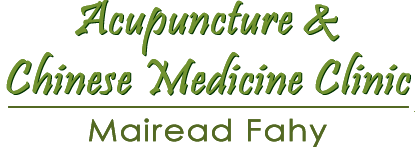Clinical Research
Recent research shows that Acupuncture can:
- Increase blood flow to the uterus and ovaries
- Regulate hormones to produce a large number of follicles
- Improve the quality and thickness of the uterine lining
- Improve hormone levels including FSH, Prolactin, Oestrogen and Progesterone
- Reduce stress
- Regulate the Menstrual cycle
There are also studies to show that Acupuncture can be highly effective in improving conception for women undergoing IVF (Click here for research). The most commonly quoted research is from the Department of Reproductive Medicine, Christian-Lauritzen-Institut, Ulm, Germany. Commonly known as The German Report, it studied 160 patients undergoing IVF randomized into 2 groups of 80, one group which received acupuncture pre and post embryo transfer, and the control group which received no acupuncture. The results showed that 34 out of the 80 patients (42.5%) who received acupuncture achieved a positive pregnancy test, compared to 21 of the 80 in the control group (26.3%).
The thought here is that Acupuncture received as close to transfer both pre and post, can reduce uterine contractions which might result in expulsion of the embryo, or may prevent a successful implantation.
In general, if a couple is deciding to have Acupuncture to either enhance natural conception, or to assist in IVF or other ART procedures, it is advisable to undergo at least 3 months of treatment. This is based on the knowledge that it takes 3 months for healthy eggs and/or sperm to form, so that in this way the body is at its optimum health for conception to occur. Of course if trying naturally, conception may happen within this time frame, and in this case Acupuncture can be utilised to prevent miscarriage in the first Trimester. Special attention is placed on Diet and Lifestyle advice in this time also, again so that the body is in its healthiest state for pregnancy to occur.
Fertility Research
Acupuncture can increase blood flow to the uterus (Stener-Victorin E, et al Human Reproduction Oxford Journal 1996; Vol. 11, No. 6, pp.1314-1317 http://humrep.oxfordjournals.org/content/11/6/1314.abstract )
Acupuncture on the day of embryo transfer significantly improves the reproductive outcome of IVF, compared with no acupuncture (Westergaard L et al, Fertility and Sterility April 2006 Vol 85, pp. 1341-1346 http://www.fertstert.org/article/S0015-0282%2806%2900212-3/abstract ).
Dept of Reproductive Medicine, Christian-Lauritzen-Institut, Ulm, Germany. Fertil Steril 2002:77;721-4. 2002. American Society of Reproductive Medicine.
Luteal-phase acupuncture has a positive effect on the outcome of IVF/ICSI (Dieterle S et al, Fertility and Sterility May 2006 Vol 85, pp. 1347-1351 http://www.fertstert.org/article/S0015-0282%2806%2900213-5/abstract ).
‘Acupuncture Normalizes Dysfunction of Hypothalamic-Pituitary-Ovarian Axis’
Bo-Ying Chen M.D. Prof. Of Neurobiology, Shanghai Medical University, Shanghai 200032, P.R.China.
(Received June 3, 1997; ccvepted with revisions June 30, 1997)
Acupuncture & Electro-Therapeutics Res., Int. J., Vol 22, pp. 97-108, 1997. Copyright © 1997 Cognizant Communication Corp.
Acupuncture seems to be a useful tool for improving pregnancy rate after ART. (Paulus W et al, Fertility and Sterility April 2002 Vol 77, pp. 721-724 http://www.fertstert.org/article/S0015-0282%2801%2903273-3/abstract ).
